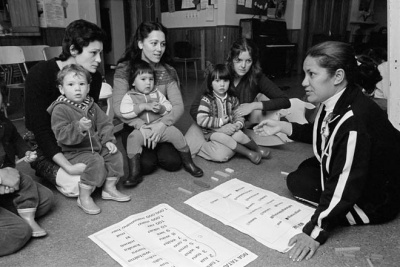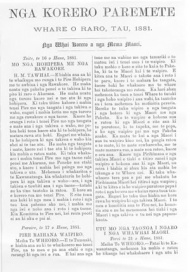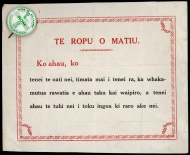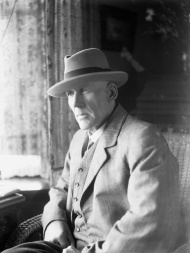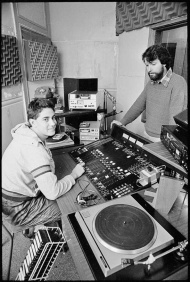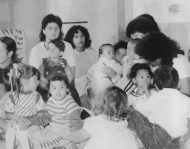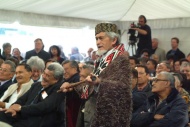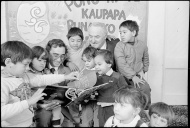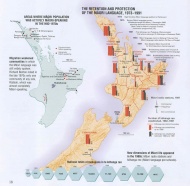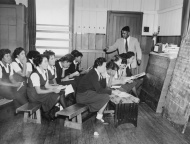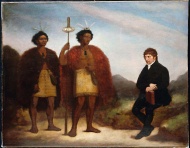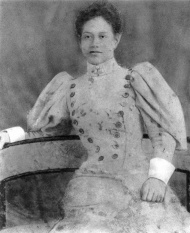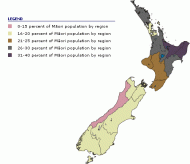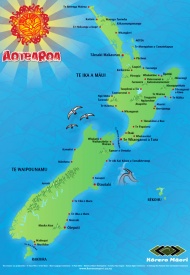Events In History
-
 1 August 1987Te reo Māori recognised as official language
1 August 1987Te reo Māori recognised as official languageThe Maori Language Act came into force, making te reo Māori an official language of New Zealand. Read more...
-
 13 April 1982First kōhanga reo opens
13 April 1982First kōhanga reo opensPukeatua Kōhanga Reo, in Wainuiomata, Lower Hutt, accepted its first intake of tamariki on Easter Tuesday in 1982 Read more...
Articles
Te Wiki o Te Reo Māori - Māori Language Week

Every year since 1975 New Zealand has marked Māori Language Week - Te Wiki o Te Reo Māori. This is a time to celebrate te reo Māori (the Māori language) and to use more Māori phrases in everyday life. In 2018 Māori Language Week runs from 10-16 September.
-
Page 2 – History of the Māori language
The story of the decline and revival of the Māori language is one of the major issues in modern New Zealand history.
-
Page 3 – 100 Māori words every New Zealander should know

100 Māori words for everyday usage. We have included individual sound files of spoken versions of all these words – just click on the word and it will be spoken!
-
Page 4 – A Māori word a day
365 words and phrases in te reo Māori
-
Page 5 – 1000 Māori place names
For each of the 1000 Māori place names on this page we’ve provided a translation of its component parts and its overall meaning.
-
Page 6 – Waitangi Tribunal claim
The Waitangi Tribunal claim for te reo Māori
Read the Treaty
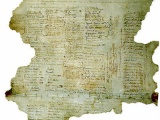
Transcript of the English version of the original Treaty of Waitangi document.
- Page 2 - Māori text of Te TiritiTranscript of the Māori version of the original Treaty of Waitangi
Parliament's culture and traditions
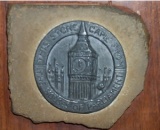
Explore Parliament's rich history and its colourful culture and traditions.
- Page 6 - Parliament in te reoTe reo (the Māori language) came into Parliament with the first Māori MPs, elected in
Missionaries
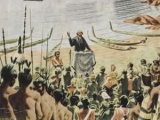
The Christian missionaries of the pre-1840s have been described as the 'agents of virtue in a world of vice', although they were not immune to moral blemish themselves.
- Page 6 - Printing the word of GodFrom the mid-1830s the printed word became a new weapon in the campaign to bring Christianity to
Biographies
-
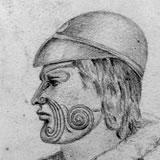 Heke Pōkai, Hōne Wiremu
Heke Pōkai, Hōne Wiremu
Ngāpuhi chief Hōne Heke was an influential northern Māori voice in favour of the Treaty of Waitangi. However, he later became a leading opponent of British rule in New Zealand.
Read more... -
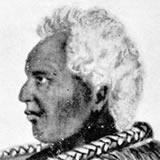 Kawiti, Te Ruki
Kawiti, Te Ruki
A notable Ngāpuhi chief and warrior and a skilled military tactician who reluctantly signed the Treaty of Waitangi in 1840.
Read more... -
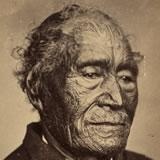 Nene, Tāmati Wāka
Nene, Tāmati Wāka
Renowned Ngāpuhi chief, Tāmati Wāka Nene, was an early friend of Pākehā. He was one of its most influential supporters in the debate at Waitangi over the Treaty and he was among the first to sign.
Read more... -
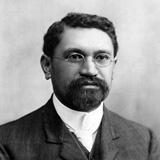 Ngāpua, Hōne Heke
Ngāpua, Hōne Heke
Hōne Heke Ngāpua was elected to Parliament in 1893 and represented the people of Northern Māori almost continuously until his death in 1909.
Read more... -
 Parata, Wiremu Te Kākākura
Parata, Wiremu Te Kākākura
Elected to Parliament as the member for Western Māori in 1871, Wiremu Parata, took part in several high-profile court claims over Māori land.
Read more... -
 Pere, Wiremu
Pere, Wiremu
Wi Pere was a strong critic of the government's Maori land policies during his 15 years as a Member of Parliament for Eastern Maori
Read more... -
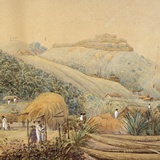 Pomare
Pomare
Pōmare II was a prominent Ngāpuhi chief who signed the Treaty of Waitangi. He was later arrested by the British on suspicion of treason but released on the intervention of Tāmati Wāka Nene.
Read more... -
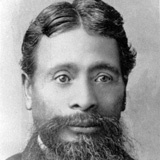 Taiwhanga, Hirini Rawiri
Taiwhanga, Hirini Rawiri
Son of Rawiri Taiwhanga, Hirini Taiwhanga petitioned Queen Victoria to change the laws that breached the Treaty of Waitangi.
Read more... -
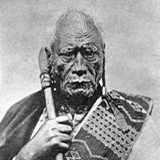 Taraia Ngakuti Te Tumuhuia
Taraia Ngakuti Te Tumuhuia
Ngāti Maru and Ngati Tamaterā chief who rejected the intrusion of Europeans in the traditional Māori world.
Read more... -
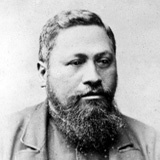 Tāwhai, Hōne Mohi
Tāwhai, Hōne Mohi
A member of the House of Representatives, Hōne Mohi Tāwhai became disillusioned in the settler-dominated Parliament and helped set up an alternative Māori Kotahitanga Parliament.
Read more... -
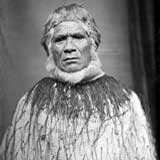 Te Hāpuku
Te Hāpuku
Hawke's Bay chief, Te Hāpuku, signed the 1835 Declaration of Independence and the Treaty of Waitangi. He opposed the King Movement fought against the Hauhau and Te Kooti.
Read more... -
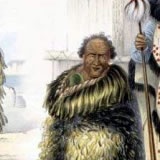 Te Heuheu Tūkino III, Iwikau
Te Heuheu Tūkino III, Iwikau
A paramount chief of Ngāti Tūwharetoa, Iwikau Te Heuheu was an ardent proponent of Māori nationalism, supporting the movement to set up a Māori king.
Read more... -
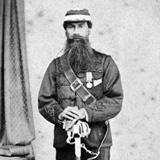 Te Rangihiwinui, Te Keepa
Te Rangihiwinui, Te Keepa
Muaūpoko, Ngāti Apa and Whanganui chief who joined the Armed Police Force and fought in campaigns against the Hauhau, Te Kooti and Tītokowaru during the 1860s.
Read more... -
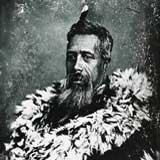 Te Rangi-pūawhe, Te Keepa
Te Rangi-pūawhe, Te Keepa
As a major in the New Zealand Militia, Te Keepa Te Rangi-pūawhe led a contingent of the Te Arawa tribe, which pursued the rebel leader Te Kooti into the Urewera region.
Read more... -
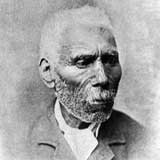 Te Rangitake
Te Rangitake
Te Ati Awa leader Wiremu Kīngi Te Rangitāke's refusal to give up his land at Waitara led to the outbreak of the Taranaki War. In later life joined the pacifist community at Parihaka.
Read more... -
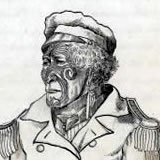 Te Rauparaha
Te Rauparaha
Te Rauparaha was a Ngāti Toa chief and warrior. Sometimes called the 'Napoleon of the Southern Hemisphere', he ruled the lower end of the North Island from his base at Kapiti Island for the best part of 20 years
Read more... -
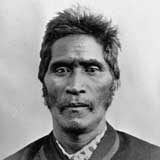 Te Waharoa, Wiremu Tāmihana Tarapipipi
Te Waharoa, Wiremu Tāmihana Tarapipipi
Ngāti Hauā chief who took a leading role in forming the King Movement (Kīngitanga) and the election of Pōtatau Te Wherowhero as the first Māori King.
Read more... -
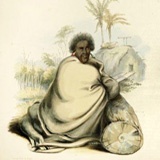 Te Wherowhero, Pōtatau
Te Wherowhero, Pōtatau
In the 1850s, a movement was set up to appoint a Māori king who would unite the tribes, protect land from further sales and make laws for Māori to follow. Te Wherowhero became the first Māori king in 1858.
Read more... -
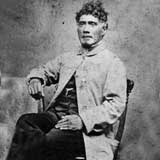 Te Whiwhi, Hēnare Mātene
Te Whiwhi, Hēnare Mātene
Hēnare Mātene Te Whiwhi promoted the idea of a Māori monarch, which he believed would be vital to protect Māori land.
Read more... -
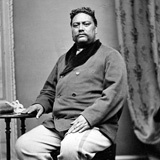 Tomoana, Hēnare
Tomoana, Hēnare
Ngāti Kahungunu leader Hēnare Tomoana was the first speaker (pīka) of the Māori Parliament in 1892.
Read more... -
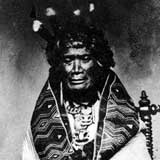 Te Rangitopeora
Te Rangitopeora
A signatory to the Treaty of Waitangi, Rangi Topeora was often referred to as the Queen of the South. She was a noted composer and mediator, and rejected European clothing throughout her life.
Read more... -
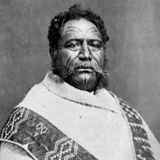 Tūhaere, Paora
Tūhaere, Paora
Ngāti Whatua chief Paora Tūhaere became a leading member of the Te Kotahitanga movement, which aimed to create a Māori parliament to give Māori greater authority in government.
Read more... -
 Cooper, Whina
Cooper, Whina
Te Rārawa leader and woman of mana Dame Whina Cooper spent her whole life fighting for Māori land rights. As a 79-year old she led Māori land protest marchers as they walked from Te Hāpua (in the far north) to Parliament, arriving on 13 October 1975.
Read more... -
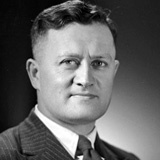 Henare, James Clendon Tau
Henare, James Clendon Tau
James Henare was Ngā Puhi leader, soldier, farmer, and community leader. After the Second World War he helped set up the kōhanga reo programme and fought for recognition of Māori rights under the Treaty of Waitangi.
Read more... -
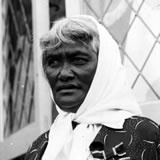 Hērangi, Te Kirihaehae Te Puea (Princess Te Puea)
Hērangi, Te Kirihaehae Te Puea (Princess Te Puea)
Te Puea Hērangi was granddaughter of the second Māori King. She was a staunch opponent of conscription for Waikato during the First World War and a prominent advocate for Tainui.
Read more... -
 Te Rata Mahuta Tāwhiao Pōtatau Te Wherowhero Korokō
Te Rata Mahuta Tāwhiao Pōtatau Te Wherowhero Korokō
The fifth Māori King, Korokī Te Rata Mahuta Tāwhiao Pōtatau Te Wherowhero struggled to maintain the dignity of the Kīngitanga and obtain recognition during his reign.
Read more... -
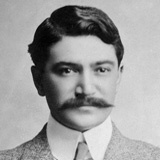 Māwhete, Rangiputangatahi
Māwhete, Rangiputangatahi
Involved in local and national politics, Rangiputangatahi Māwhete, worked hard for Māori in the Manawatū during the 1930s and 1940s. He was particularly active in the Māori War Effort Organisation during the Second World War.
Read more... -
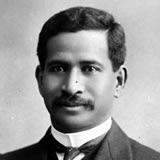 Ngata, Apirana Turupa
Ngata, Apirana Turupa
Ngāti Porou leader and politician Apirana Ngata is one of New Zealand's best-known figures. Working through traditional tribal structures and as MP for Eastern Māori, he worked to strengthen Māori communities and revive Māori culture.
Read more... -
 Paikea, Paraire Karaka
Paikea, Paraire Karaka
Te Uri-o-Hau Methodist minister and Rātana leader, Paraire Paikea, played a leading role in forging the historic alliance between the Rātana movement and the Labour Party. He was minister in charge of the Māori war effort during the Second World War.
Read more... -
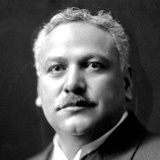 Pōmare, Māui Wiremu Piti Naera
Pōmare, Māui Wiremu Piti Naera
Māui Pōmare was the first Māori doctor. As Māori Medical Officer, toured Māori districts in this role, advising people about public health. Pōmare became a member of Parliament in 1911, and minister of health in the 1920s.
Read more... -
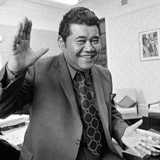 Rata, Matiu
Rata, Matiu
As minister of Māori affairs Matiu Rata helped set up the Waitangi Tribunal in 1975. He later left the Labour Party to form Mana Motuhake, the first modern Māori politcal party.
Read more... -
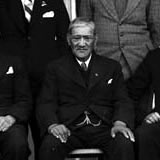 Rātana, Tahupōtiki Wiremu
Rātana, Tahupōtiki Wiremu
Tahupōtiki Wiremu Rātana, of Ngāti Apa and Ngā Rauru, founded the Rātana Church, which remains a major religious and political force today.
Read more... -
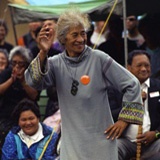 Rickard, Eva
Rickard, Eva
Eva Rickard was one of the most outspoken Māori land-rights campaigners of the 1970s.
Read more... -
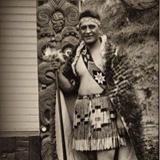 Te Heuheu Tūkino VI, Hoani
Te Heuheu Tūkino VI, Hoani
As chairman of the Ngāti Tuwharetoa Trust Board, Hoani Te Heuheu, advised Ngāti Tūwharetoa on taking stock of its resources, both land and people, and planning a future based on economic and social principles.
Read more... -
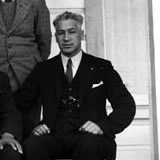 Tirikātene, Eruera Tihema Te Aika
Tirikātene, Eruera Tihema Te Aika
Ngāi Tahu politician Eruera Tirikātene became the first Member of Parliament to represent the Rātana religious and political movement in 1932.
Read more... -
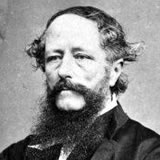 Colenso, William
Colenso, William
Colenso arrived at the Bay of Islands as the Church Mission printer in December 1834. His achievements include printing the New Testamont in Māori and the Māori version of the Treaty of Waitangi.
Read more... -
 Williams, Henry
Williams, Henry
Henry Williams was a missionary who supported British annexation. He believed that Māori should be protected from lawless Europeans and fraudulent dealings. He and his son Edward translated the Treaty of Waitangi into Māori.
Read more... -
 Te Kawau, Āpihai
Te Kawau, Āpihai
Te Kawau was a Ngāti Whātua leader who signed the Treaty of Waitangi at Manukau Harbour in March 1840. He later worked with European magistrates to settle disputes among Māori.
Read more...
Related keywords
- parliament
- Maori MPs
- maori language
- apirana ngata
- rangitane
- rangiputangatahi mawhete
- maori leaders
- tahupotiki wiremu ratana
- ngai tahu
- eruera tirikatene
- ngati kahungunu
- henare tomoana
- maori land
- te uri-o-hau
- paraire paikea
- alcohol
- prohibition
- children
- education
- te aitanga-a-mahaki
- te whanau a kai
- rongowhakaata
- wiremu pere
- tuhourangi
- te arawa
- te keepa te rangi-puawhe
- ngapuhi
- hirini taiwhanga
- ngati toa
- ngati raukawa
- wairau incident
- treaty of waitangi
- henare te whiwhi
- treaty signatories
- hone tawhai
- ngati whatua
- paora tuhaere
- james cowan
- tourism
- new zealand wars
- historical writing
- writing
- historians
- radio broadcasts
- 1980s
- missionaries
- publishing
- catholic
- cms
- christianity
- pre-1840 contact
- ngati tuwharetoa
- iwikau te heuheu tukino iii
- te ati awa
- wiremu parata
- ngati tamatera
- tāraia ngākuti te tumuhuia
- ngati maru
- te hapuku
- declaration of independence
- whanganui city
- muaupoko
- major kemp
- te keepa te rangihiwinui
- kingitanga
- king koroki
- te rangitopeora
- te rangihaeata
- ngati haua
- wiremu tamihana tarapipipi te waharoa
- television
- ngati kuri
- matiu rata
- waitangi tribunal
- te rarawa
- te aupouri
- james henare
- hoani te heuheu tukino vI
- taranaki
- waitara
- wiremu te rangitake
- maui pomare
- ngati mutunga
- māori health
- tainui
- waikato
- potatau te wherowhero
- musket wars
- maps
- apihai te kawau
- land claims
- MPs
- kotahitanga
- hone heke ngapua
- hongi hika
- painting
- thomas kendall
- pomare II
- northern war
- raglan
- eva rickard
- printing
- william colenso
- religion
- ngati apa
- nga rauru
- te ruki kawiti
- tamati waka nene
- te rauparaha
- kawhia
- suffrage campaign
- protest
- maori
- women in politics
- meri mangakahia
- suffrage 125
- conscription
- te puea herangi
- ngati porou
- united party
- henry williams
- place names
- kororareka
- hone heke
- whina cooper
- hikoi
- urbanisation
-
Main image: Te Ataarangi

